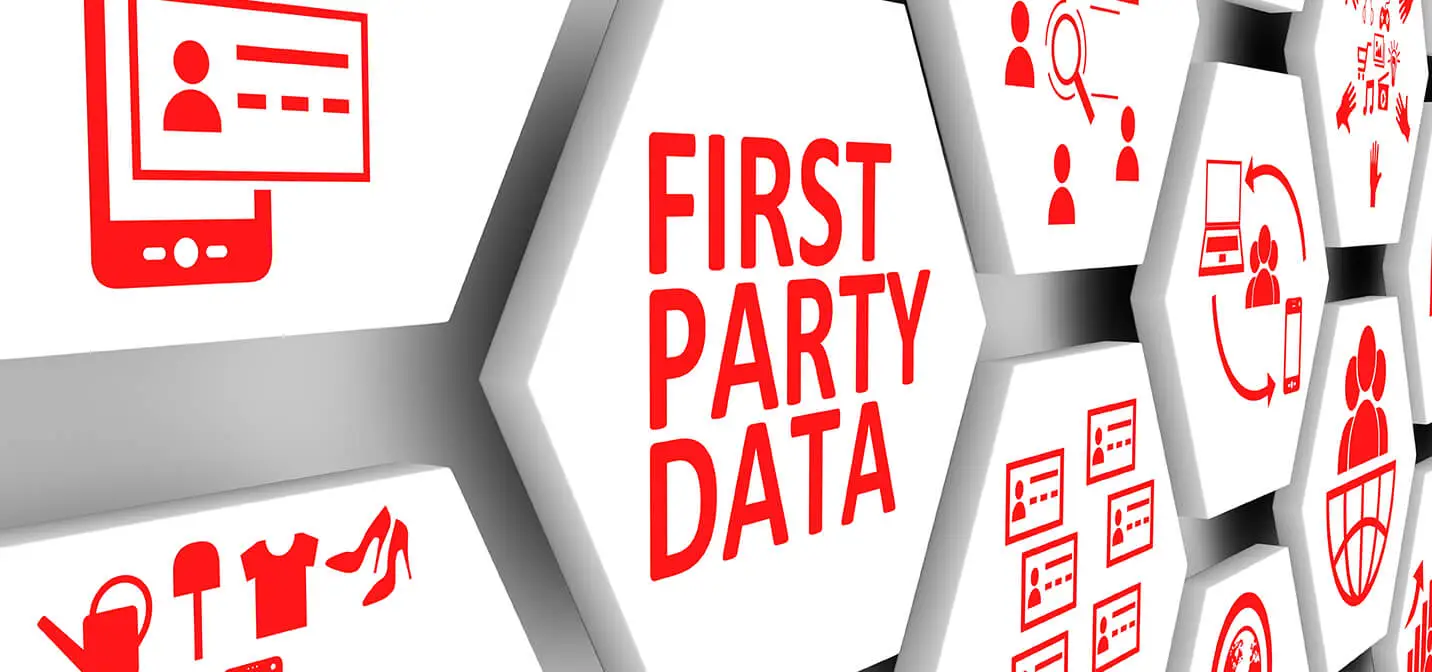First-Party Data Strategy for Digital Marketing Agencies: Your Compass in a Privacy-First World

The digital marketing landscape is undergoing a seismic shift. The era of readily available third-party cookies, once the bedrock of targeted advertising and personalized experiences, is drawing to a close. Privacy regulations like GDPR and CCPA are empowering consumers with greater control over their data, and browser updates are further restricting cross-site tracking. For digital marketing agencies, this isn’t just a challenge; it’s a profound opportunity to forge deeper, more meaningful connections with audiences through a robust first-party data strategy.
In 2025, agencies that master the art of collecting, analyzing, and activating first-party data will not only navigate the evolving privacy landscape but will also unlock a treasure trove of insights leading to more effective, efficient, and ethical marketing campaigns for their clients. This comprehensive guide delves into the intricacies of building a winning first-party data strategy, addressing key pain points, offering practical solutions, and illuminating the path to sustainable growth.
The Fading Echo of Third-Party Cookies: A Wake-Up Call
For years, digital marketing agencies have relied heavily on third-party cookies to track user behavior across the web, build audience segments, and deliver targeted advertising. While seemingly effective, this approach often felt intrusive to consumers and lacked the depth of understanding that truly drives meaningful engagement. The impending demise of third-party cookies is forcing a necessary evolution, pushing agencies to cultivate direct relationships with their clients’ customers.
The Pain Points of Third-Party Cookie Dependence:
- Erosion of Trust: Consumers are increasingly wary of how their data is collected and used by third parties, leading to ad fatigue and a decline in trust towards brands.
- Limited Data Granularity: Third-party data often provides a broad, superficial understanding of user behavior, lacking the nuanced insights needed for truly personalized experiences.
- Accuracy and Reliability Issues: The accuracy and reliability of third-party data can be questionable, as it’s often aggregated from various sources with varying levels of transparency.
- Compliance Challenges: Navigating the complex web of privacy regulations surrounding third-party data collection can be a legal minefield.
- Decreasing Effectiveness: As privacy measures tighten, the effectiveness of campaigns relying solely on third-party data is diminishing, leading to wasted ad spend.
Embracing the Power of First-Party Data: A Strategic Imperative
First-party data, the information a business collects directly from its customers through its own channels (website, apps, CRM, email marketing, surveys, etc.), offers a powerful antidote to the limitations of third-party data. It’s accurate, transparent, and reflects direct interactions and consent, fostering trust and enabling deeper customer understanding.
The Advantages of a Strong First-Party Data Strategy:
- Enhanced Customer Understanding: First-party data provides a holistic view of customer behavior, preferences, and purchase history, enabling richer insights and more accurate audience segmentation.
- Personalized Experiences: With a deeper understanding, agencies can craft highly personalized content, offers, and experiences that resonate with individual customers, leading to increased engagement and conversion rates.
- Improved Targeting and Efficiency: First-party data allows for more precise targeting, ensuring marketing efforts reach the most relevant audiences, reducing wasted ad spend and maximizing ROI.
- Stronger Customer Relationships: By demonstrating respect for customer privacy and delivering value through personalized experiences, agencies can help their clients build stronger, more loyal customer relationships.
- Future-Proofing Marketing Efforts: In a privacy-first world, a robust first-party data strategy provides a sustainable foundation for effective marketing, independent of third-party tracking limitations.
- Increased Data Accuracy and Reliability: Data collected directly from customers is inherently more accurate and reliable, leading to more informed decision-making.
- Greater Control and Transparency: Agencies have complete control over how first-party data is collected, stored, and used, ensuring compliance with privacy regulations and fostering transparency with customers.
Building Your First-Party Data Fortress: A Step-by-Step Guide
Developing a successful first-party data strategy requires a thoughtful and systematic approach. Here’s a roadmap for digital marketing agencies:
Define Clear Objectives and KPIs: Begin by identifying the specific marketing goals you aim to achieve with first-party data. Are you looking to improve customer acquisition, enhance personalization, increase customer lifetime value, or optimize marketing spend? Define clear Key Performance Indicators (KPIs) to measure the success of your strategy.
Audit Existing Data Sources and Infrastructure: Take a comprehensive inventory of all the first-party data your clients are currently collecting. This includes website analytics, CRM data, email marketing data, social media engagement data, customer service interactions, and any other direct touchpoints. Assess the quality, completeness, and accessibility of this data.
Implement Robust Data Collection Methods: Ensure your clients have the necessary tools and processes in place to collect high-quality first-party data ethically and with explicit consent. This includes:
- Website Tracking: Implement analytics tools (beyond basic page views) to track user behavior, content engagement, and conversion paths.
- CRM Integration: Centralize customer data from various touchpoints into a Customer Relationship Management (CRM) system.
- Email Marketing Platforms: Leverage email engagement data (opens, clicks, conversions) for segmentation and personalization.
- Surveys and Feedback Forms: Collect direct customer feedback on preferences, needs, and experiences.
- Loyalty Programs: Incentivize customers to share data in exchange for exclusive benefits.
- Account Creation and Profile Management: Encourage customers to create accounts and provide detailed profile information.
- Progressive Profiling: Gradually collect data over time through targeted questions and interactions.
Prioritize Data Quality and Hygiene: First-party data is only valuable if it’s accurate, complete, and up-to-date. Implement data cleansing processes to remove duplicates, correct errors, and ensure data consistency across all systems.
Establish a Secure and Compliant Data Management Framework: Adhere to all relevant privacy regulations (GDPR, CCPA, etc.) and industry best practices for data security. Implement robust data governance policies, including data access controls, encryption, and data retention schedules. Ensure transparency with customers about how their data is being collected and used.
Invest in Data Analysis and Insights Tools: Raw data is meaningless without analysis. Invest in tools and expertise to analyze first-party data effectively. This may include data visualization platforms, business intelligence tools, and data science capabilities. Identify key trends, patterns, and customer segments to inform marketing strategies.
Develop Actionable Audience Segments: Leverage the insights gained from data analysis to create granular audience segments based on demographics, behavior, preferences, purchase history, and engagement patterns. These segments will be the foundation for personalized marketing efforts.
Personalize Customer Experiences Across Channels: Use first-party data to deliver personalized content, offers, product recommendations, and customer service interactions across all relevant channels, including website, email, social media, and in-app experiences.
Measure, Iterate, and Optimize: Continuously track the performance of your first-party data-driven marketing campaigns against your defined KPIs. Analyze the results, identify areas for improvement, and iterate on your strategies to optimize effectiveness.
Educate Your Clients and Their Teams: Ensure your clients understand the value of first-party data and the importance of a collaborative approach to data collection and utilization. Provide training and resources to empower their teams to contribute effectively to the first-party data strategy.
Navigating the AI-Driven Search Landscape with First-Party Data
In 2025, AI-driven search models like Google Gemini, ChatGPT, DeepSeek, and Perplexity are increasingly shaping how users discover and interact with information. A strong first-party data strategy can provide a significant advantage in this evolving landscape:
- Understanding Customer Intent: First-party data can provide valuable context about customer needs and pain points, allowing you to create content that directly answers their questions and aligns with their search intent, increasing the likelihood of being featured in AI-generated summaries and recommendations.
- Personalized Search Experiences: While AI models aim to provide unbiased information, understanding individual user preferences through first-party data can inform the types of content and offers that are most relevant to them, potentially influencing how they interact with search results.
- Building Brand Authority: By consistently delivering valuable and personalized experiences based on first-party data, you can build stronger brand loyalty and authority, making your content more likely to be trusted and cited by AI models.
- Optimizing for Conversational Search: First-party data can provide insights into the natural language queries customers use, helping you optimize your content for voice search and conversational AI interactions.
Frequently Asked Questions About First-Party Data for Digital Marketing Agencies
Q: What are some examples of first-party data that digital marketing agencies can leverage? A: Website browsing history, purchase data, email engagement (opens, clicks), form submissions, survey responses, customer service interactions, social media engagement on owned channels, app usage data, and data from loyalty programs.
Q: How can digital marketing agencies ensure they are collecting first-party data ethically and with consent? A: Implement clear and transparent privacy policies, obtain explicit consent for data collection and usage, provide users with control over their data, and adhere to all relevant privacy regulations.
Q: What are the key challenges in implementing a first-party data strategy? A: Data silos, data quality issues, lack of internal expertise, integrating different data sources, ensuring data security and compliance, and demonstrating the ROI of data-driven marketing.
Q: How can small digital marketing agencies benefit from a first-party data strategy? A: Even with limited resources, small agencies can focus on collecting and leveraging key first-party data points (e.g., website inquiries, email sign-ups) to personalize communication and build stronger client relationships.
Q: What is the role of technology in a first-party data strategy? A: Technology plays a crucial role in data collection, storage, management, analysis, and activation. Agencies need to invest in the right tools (CRM, analytics platforms, marketing automation software, etc.) to effectively implement their strategy.
Conclusion: Embracing the Future with First-Party Data
The shift towards a privacy-first web is not an obstacle but an opportunity for digital marketing agencies to elevate their strategies and deliver greater value to their clients. By embracing the power of first-party data, agencies can move beyond superficial tracking and build genuine understanding, leading to more personalized, effective, and ethical marketing campaigns. In 2025 and beyond, a well-defined and diligently executed first-party data strategy will be the cornerstone of success, enabling agencies to navigate the evolving digital landscape and forge stronger, more profitable relationships between brands and their customers.
Contact Us
Ready to unlock the power of first-party data for your clients? Contact Morphiaas in India for digital marketing services and let our expert team guide you in building a future-proof marketing strategy.




